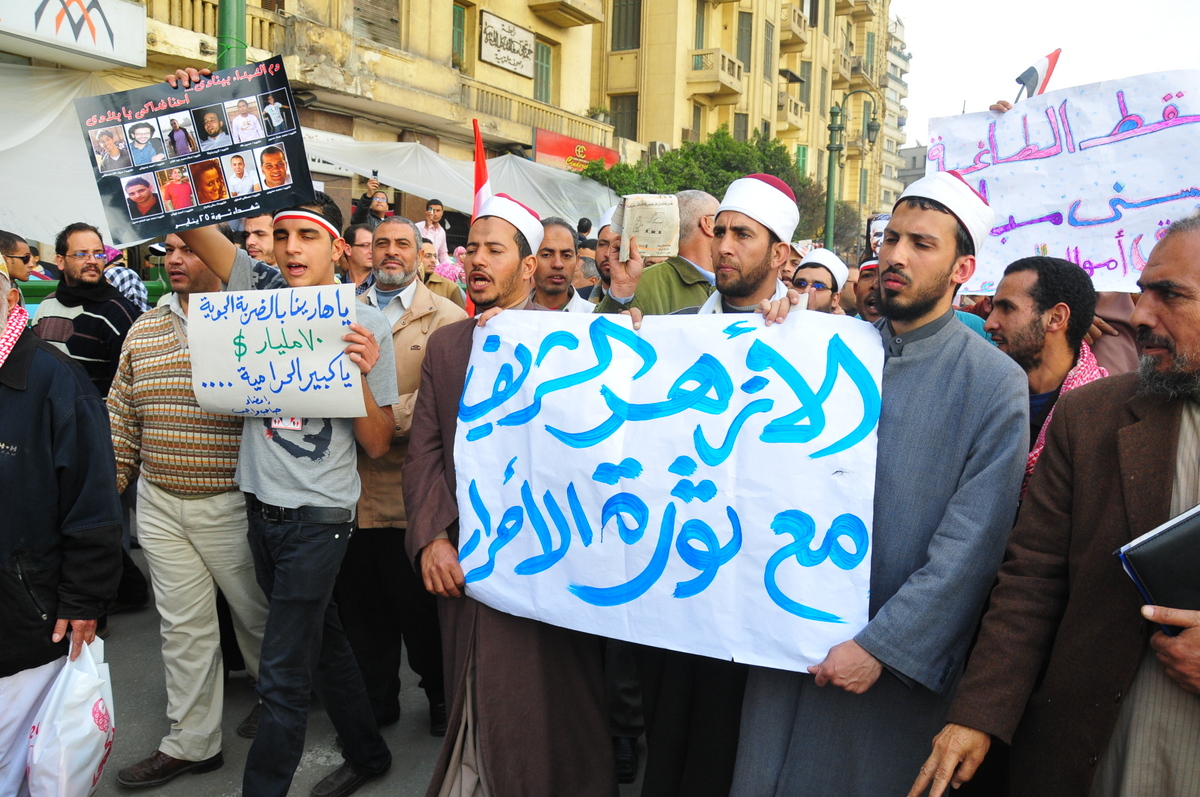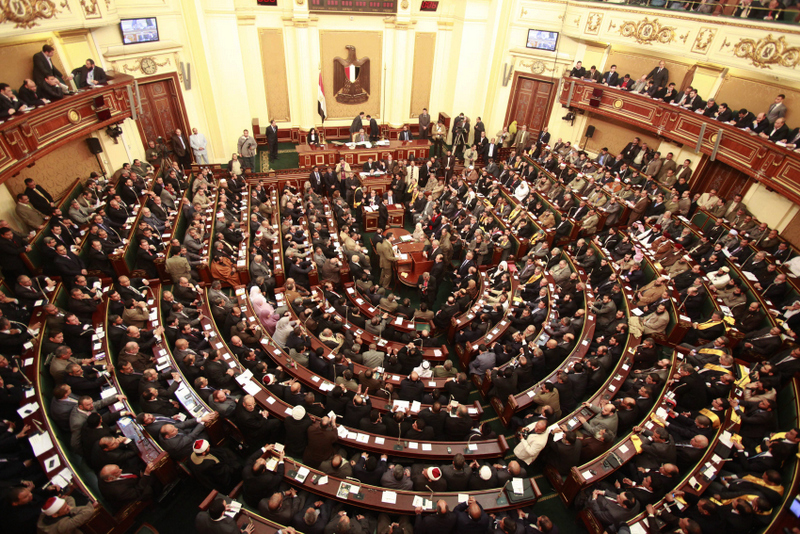
The 30th of June was a coup that wasn’t popularly supported. Police sent a few thousand plain-clothed personnel to Tahrir Square on that day to demonstrate. The media, decidedly against President Mohamed Morsi, hyped up the demonstrations by showing footage from the 18 days in 2011 in an effort to exaggerate Morsi’s opposition and deceive the population, who strongly backed Morsi’s legitimacy. Old regime remnants, Christians, Al-Azhar and other state institutions then conspired with the army to overthrow Morsi, beckoning back the days of Mubarak and his National Democratic Party.
The Muslim Brotherhood is a terrorist organisation. Morsi obtained the presidency through electoral fraud and, with the help of Qatar, Hamas, and the United States, was able to implement his dictatorial rule unchallenged. This went on until 35 million people took to the streets, and the army, which always sides with the people, helped them oust Morsi.
I heard these two different accounts of the same events from protesters at Rabaa Al-Adaweya and Tahrir Square, respectively. Those in demonstrations against the Brotherhood will tell me those at cholera-infested Rabaa are predominantly Palestinians, Syrians and sheep (a derogatory phrase used for Brotherhood members). The Rabaa demonstrator will tell me those in Tahrir are Christians, members of the former regime and police officers.
These views, although intensified by 3 July, existed beforehand. It’s what always made me so sceptical about “reconciliation” – a term thrown around constantly by Morsi during his presidency and one we’ll be sure to hear on a daily basis from our new government.
I’m not sceptical that political reconciliation is possible, although these days the prospect is extremely daunting. Instead, I’m worried about something far more important – social reconciliation.
We have spent the last year watching the Brotherhood lose much of its support, sympathy and respect. Rifts in our segmented society continue to deepen, as they have over the past two years.
Meanwhile we have seen its members turn inwards. The group, which is built on decades of persecution, is down to its own members, Salafis, and dwindling non-ideologically aligned sympathisers. To them, if you’re not with them, you’re against them and the Islamist project. The Brotherhood, which demonstrated that it could not effectively engage other groups, seems to have lost whatever trust it might have had in the political process.
An online petition is calling on the Obama administration to declare the Brotherhood a terrorist group, saying that their associations and ideology represent terrorism.
There is an argument for holding some of the Brotherhood’s leadership accountable for things like incitement to violence. However, there are fundamental problems with wanting to deal with the whole group as if it is a terrorist organisaton. Whether Brotherhood critics like it or not, the group forms a significant part of the population, large enough to mobilise street support or sway elections.
At the end of the day, the Brotherhood is a part of Egyptian society. Even if we lived in a society and world in which indiscriminately cracking down on the group was acceptable, the Brotherhood has demonstrated that it is capable of surviving such attempts at silencing them and becoming more defiant in the process
On the other hand, the Brotherhood will not be capable of reconciling with some other parts of society unless it frees itself of certain delusions. The world is not cooperating together to work against the Brotherhood. The group’s opponents are not declaring any sort of war on Islam. Millions of Egyptians had legitimate grievances with Morsi’s presidency, a presidency shaped by a democratic election but which quickly departed from any sort of framework of inclusion.
Political reconciliation won’t come anytime soon. The Brotherhood seems determined to push an immoveable object until it moves, while the military and its supporters have no qualms with cracking down on the Brotherhood regardless of what that would entail.
The political crisis lengthens and exacerbates the more dangerous social one. On Wednesday, the same day that the Brotherhood boycotted interim president Adly Mansour’s first attempt at national dialogue, Commander-in-Chief General Abdul Fatah Al-Sisi called on Egyptians to demonstrate against violence and terrorism on Friday. The demonstrations will surely be used either to justify swift and brutal action or to intimidate the Brotherhood.
The army has more support than any institution in the country, and one sentence from Al-Sisi will mobilise more people than the Brotherhood can with its transportation network.
Social divisions now run deeper than the disagreements of political actors. Until all sides realise their opponents aren’t going anywhere, very little is likely to change. This comes with honest attempts to understand the other. Until then we’ll have front row seats to the fight between “infidels” and “terrorists”. The social repercussions will outlive any political crisis.
Basil is a political reporter for Daily News Egypt. Follow him on @basildabh



